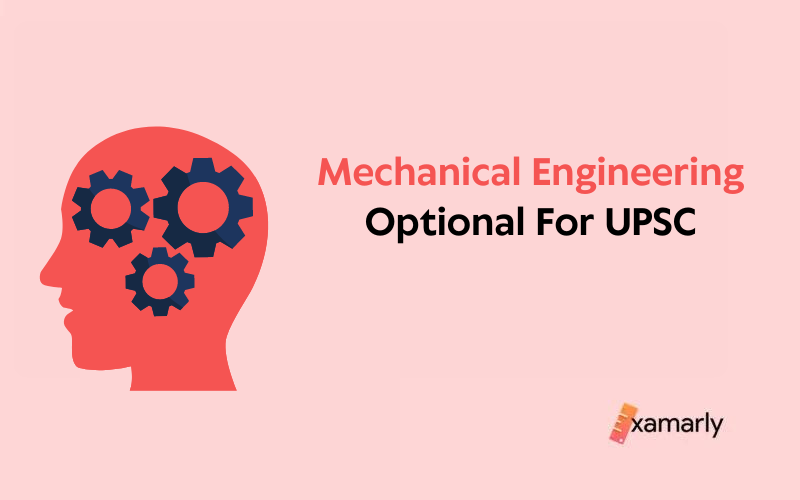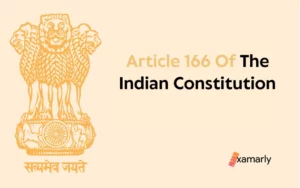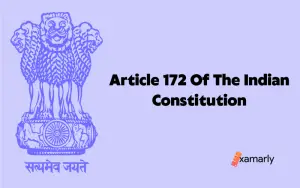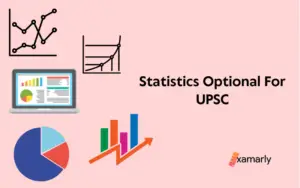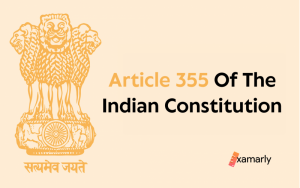In a country like ours, cracking the UPSC exam is a dream that is envisioned by many students. Under the Civil Services Examination pattern, prospective candidates are offered a list of optional subjects by UPSC to choose from. For the UPSC mains exam, the candidates have to select one optional subject from that specified list of subjects. Among the subjects offered, one of them is Mechanical Engineering optional for UPSC.
Read on to learn more about the Mechanical Engineering optional for UPSC such as its advantages, disadvantages, toppers, success rate, standard references, preparation strategy, and so on.
- What Is Mechanical Engineering Optional For UPSC?
- Comparison With Other Optional Papers
- Advantages
- Disadvantages
- How To Prepare UPSC Mechanical Optional Paper?
- Importance Of Academic Background
- What Time Duration Is Required For Preparation?
- Overlapping Syllabus With GS
- Help With Essay Paper
- Help In Interview
- Recent Toppers Of UPSC CSE With Mechanical Engineering Optional
- Success Rate For Mechanical Engineering Optional For UPSC
- Mechanical Engineering Optional Syllabus
- UPSC Mechanical Engineering Optional Books
- Conclusion
- FAQs
What Is Mechanical Engineering Optional For UPSC?
Keeping engineering graduates in mind, there are three optional papers in UPSE CSE Exam to choose from, namely- Mechanical, Civil, and Electrical Engineering. All three are core branches of engineering. Mechanical Engineering optional paper is one of them. Only the candidates with prior knowledge of engineering are advised to take up this subject as their optional paper.
For the IAS mains exam, about 100 candidates go for the Mechanical Engineering optional paper. A majority of the successful candidates come from engineering backgrounds. There are two optional papers, Paper I and Paper II. Each of these carries an equal weightage of 250 marks. So, the total weightage of both papers is 500 marks.
Comparison With Other Optional Papers
Mechanical Engineering optional paper is a technical and highly specialized subject. There is no overlapping of the syllabus with the General Studies paper.
Just like other optional papers, the Mechanical Engineering optional paper comprises Paper I and Paper II. Each of them carries 250 marks, so the combined weightage is 500 marks. Also, the time duration of each paper is 3 hours.
Advantages
Let us now focus on the list of advantages of having a Mechanical Engineering optional paper in UPSC. They have been discussed below:
- Firstly, the objective nature of the paper is the best advantage. In technical subjects such as this, there is only one correct response. So, if the candidate is familiar with the correct answer, the score does not vary much.
- Technical subjects such as engineering are believed to be more scoring as it includes diagrams, flowcharts, and other pictorial representations.
- Candidates with engineering backgrounds have already spent four years studying this subject. Such candidates would not find the paper as difficult as any candidate from another background would.
- The questions asked are of the graduation level. The difficulty level of the questions is not too high.
- Also, the questions in the engineering optional papers are often repeated from the question bank of previous years. As the questions are direct and straightforward, there is no room for ambiguity.
- Lastly, candidates opting for the Mechanical Engineering optional are eligible to appear in the Indian Engineering Services (IES) exam.
Disadvantages
Let us take a look at the downside of the Mechanical Engineering optional for UPSC.
- Firstly, the syllabus to be covered for the exam is extremely vast.
- Secondly, this paper has no overlapping with the General Studies paper.
- Thirdly, if the candidate has been out of touch with the subject or does not have a liking for the same, it might be tough for the candidate to clear the exam. In such a case, it is advised to explore the other optional subjects.
How To Prepare UPSC Mechanical Optional Paper?
If a candidate wishes to choose the Mechanical Engineering optional paper, they should start from the basics. Mechanical engineering is a subject that requires a strong understanding of Math and Physics. One should take time to understand the core concepts, and pay attention to details. This will help to develop clear concepts and reduce revision time. Some of the basic tips to prepare the mechanical engineering optional syllabus for UPSC are discussed below:
- Go through the syllabus to know what to cover and what not to cover while preparing.
- Become familiar with the questions that the UPSC asks. You should carefully read through the mechanical engineering UPSC question papers from previous years to prepare for this.
- Give careful consideration to the theory parts.
- Practice all of the numerical examples that have been solved in the standard textbooks. Also, practice numerical problems from exam papers from prior years.
- Additionally, you should practice exam-style paper solving. A test series will be useful in this regard as well. Understanding the unique requirements of the IAS exam, such as drafting thorough answers in a constrained amount of time and skill of knowing which questions to respond to when there is an option, will be made possible by solving papers in an exam-like atmosphere.
- Since there are numerous sources for learning this subject, you should take notes on the majority of the topics since this aids in revision as well.
- Your preparation must include revision, which is the most crucial component. It is imperative that you review the entire curriculum at least twice before the mains test because the mechanical engineering syllabus is incredibly extensive and there are countless formulas to know.
- Draw graphs and diagrams as needed. They boost your score and are a necessity in many responses, too.
Importance Of Academic Background
Mechanical Engineering is not an extremely difficult subject but it is important to pick a specialized discipline. This is because questions in the UPSC exam are of the graduate level. This means that the true test of an applicant is their ability to answer questions.
Moreover, the subject should match the candidate’s academic background and interests. For example, if a candidate has a strong interest in science, he or she should opt for Physics or Geography. Besides, if a candidate’s interest in science subjects is high, they won’t get bored while studying them.
What Time Duration Is Required For Preparation?
If one is planning to pursue Mechanical Engineering as an optional paper, then they have to devote adequate time to studying the subject. Mechanical Engineering has a large syllabus, which requires revision twice before the main exam. As the syllabus contains many complex formulas, it is essential that the candidate has adequate knowledge of the subject. Moreover, one must also study the graphs and diagrams provided in the syllabus. This will help in scoring more marks.
Mechanical engineering study requires around 12-15 hours a week, and it is essential to have a thorough understanding of the concepts from graduation. It is also recommended that a candidate start the preparation before the prelims. To speed up your preparation, one can make use of short notes and study the concepts through them.
Overlapping Syllabus With GS
The Mechanical Engineering optional paper does not have any overlapping with the GS paper.
Help With Essay Paper
Since Mechanical Engineering is a specialized subject, it would not directly help with scoring in the essay paper. However, one must always be thorough with the optional subject to the best of their potential.
Help In Interview
Having knowledge of the subject one is applying for is very important if the aim is to crack the interview. The written papers are an important part of the selection process. The candidate needs to show that they have an interest in their special subject and have kept up to date with current events and discoveries.
Recent Toppers Of UPSC CSE With Mechanical Engineering Optional
Here are the names of the toppers who had opted for Mechanical Engineering as their optional paper and cleared the exam with flying colors.
| Name | Year | Rank |
| Manish Kumar | 2017 | 84 |
| Vaibhava Srivastava | 2017 | 98 ( also AIR 1; IFoS 2017) |
| Nitesh Wadhwani | 2017 | 209 |
| Amit Kumar Bedwal | 2017 | 224 |
| Vivek Kumar | 2017 | 278 |
| Taranjot Singh | 2016 | 70 |
| Raveesh Gupta | 2011 | 16 |
Success Rate For Mechanical Engineering Optional For UPSC
The following table lists the optional success rate of Mechanical Engineering for UPSC over the past years.
| Year | No. of Candidates Appeared | No. of Candidates Cleared | Success Rate (%) |
| 2010 | 103 | 6 | 5.8 |
| 2011 | 103 | 7 | 6.8 |
| 2012 | 64 | 3 | 4.7 |
| 2013 | 60 | 4 | 6.7 |
| 2014 | 111 | 7 | 6.3 |
| 2015 | 115 | 14 | 12.2 |
| 2016 | 96 | 5 | 5.2 |
| 2017 | 170 | 19 | 11.2 |
Mechanical Engineering Optional Syllabus
Have a look at the detailed syllabus of the Mechanical Engineering optional for UPSC below.
Mechanical Engineering Optional Syllabus Paper 1:
1. Mechanics of Rigid Bodies
Equations of equilibrium in space and its application; first and second moments of area; simple problems on friction; kinematics of particles for plane motion; elementary particle dynamics.
2. Mechanics of Deformable Bodies
Generalized Hooke’s law and its application; design problems on axial stress, shear stress and bearing stress; material properties for dynamic loading; bending shear and stresses in beams; determination of principal stresses and strains-analytical and graphical; compound and combined stresses; bi-axial stresses-thin walled pressure vessel; material behavior and design factors for dynamic load; design of circular shafts for bending and torsional load only; deflection of beam for statically determinate problems; theories of failure.
3. Engineering Materials
Basic concepts on structure of solids, common ferrous and non-ferrous materials and their applications; heat-treatment of steels; non-metals plastics, ceramics, composite materials and nano-materials.
4. Theory of Machines
Kinematic and dynamic analysis of plane mechanisms. Cams, Gears and epicyclic gear trains, flywheels, governors, balancing of rigid rotors, balancing of single and multicylinder engines, linear vibration analysis of mechanical systems (single degree of freedom), Critical speeds and whirling of shafts.
5. Manufacturing Process
(i) Machine tool engineering – Merchant’s force analysis: Taylor’s tool life equation; conventional machining; NC and CNC machining process; jigs and fixtures.
(ii) Non-conventional machining-EDM, ECM, ultrasonic, water jet machining etc.; application of lasers and plasmas; energy rate calculations
(iii) Forming and welding processes-standard processes.
(iv) Metrology-concept of fits and tolerances; tools and gauges; comparators; inspection of length; position; profile and surface finish.
6. Manufacturing Management
(i) System design: factory location—simple OR models; plant layout-methods based; applications of engineering economic analysis and break-even analysis for product selection, process selection and capacity planning; predetermined time standards.
(ii) System planning; forecasting methods based on regression and decomposition, design and balancing of multi-model and stochastic assembly lines; inventory management-probabilistic inventory models for order time and order quantity determination; JIT systems; strategic sourcing; managing inter-plant logistics.
(iii) System operations and control: Scheduling algorithms for job shops; applications of statistical methods for product and process quality control applications of control charts for mean, range, percent defective, number of defects and defects per unit; quality cost systems; management of resources, organizations and risks in projects.
(iv) System improvement: Implementation of systems, such as total quality management, developing and managing flexible, lean and agile Organizations.
Mechanical Engineering Optional Syllabus Paper 2:
1. Thermodynamics, Gas Dynamics Turbine
(i) Basic concept of First-law and Second law of Thermodynamics; concept of entropy and reversibility; availability and unavailability and irreversibility.
(ii) Classification and properties of fluids; incompressible and compressible fluids flows; effect of Mach number and compressibility; continuity momentum and energy equations; normal and oblique shocks; one-dimensional isentropic flow; flow of fluids in duct with frictions that transfer.
(iii) Flow through fans, blowers and compressors; axial and centrifugal flow configuration; Government strives to have a workforce that reflects gender balance and women candidates are encouraged to apply; design of fans and compressors; single problems compresses and turbine cascade; open and closed cycle gas turbines; work done in the gas turbine; reheat and regenerators.
2. Heat Transfer
(i) Conduction heat transfer—general conduction equation-Laplace, Poisson and Fourier equations; Fourier law of conduction; one-dimensional steady state heat conduction applied to simple wall, solid and hollow cylinder and spheres.
(ii) Convection heat transfer—Newton’s law of convection; free and forced convection; heat transfer during laminar and turbulent flow of an incompressible fluid over a flat plate; concepts of Nusselt number, hydrodynamic and thermal boundary layer their thickness; Prandtl number; analogy between heat and momentum transfer—Reynolds, Colbum, Prandtl analogies; heat transfer during laminar and turbulent flow through horizontal tubes; free convection from horizontal and vertical plates.
(iii) Black body radiation—basic radiation laws such as Stefan-boltzman, Planck distribution, Wein’s displacement etc.
(iv) Basic heat exchanger analysis; classification of heat exchangers.
3. Engines
(i) Classification, thermodynamic cycles of operation; determination of brake power, indicated power, mechanical efficiency, heat balance sheet, interpretation of performance characteristics, petrol, gas and diesel engines.
(ii) Combustion in SI and CI engines, normal and abnormal combustion; effect of working parameters on knocking, reduction of knocking; Forms of combustion chamber for SI and CI engines; rating of fuels; additives; emission.
(iii) Different systems of IC engines-fuels; lubricating; cooling and transmission systems. Alternate fuels in IC engines.
4. Steam Engineering
(i) Steam generation—modified Rankine cycle analysis; Modern steam boilers; steam at critical and supercritical pressures; draught equipment; natural and artificial draught; boiler fuels solid, liquid and gaseous fuels. Steam turbines— Principle; types; compounding; impulse and reaction turbines; axial thrust.
(ii) Steam nozzles—flow of steam in convergent and divergent nozzle pressure at throat for maximum discharge with different initial steam conditions such as wet, saturated and superheated, effect of variation of back pressure; supersaturated flow of steam in nozzles, Wilson line.
(iii)Rankine cycle with internal and external irreversibility; reheat factor; reheating and regeneration, methods of governing; back pressure and pass out turbines.
(iv) Steam power plants—combined cycle power generation; heat recovery steam
generators (HRSG) fired and unfired, co-generation plants.
5. Refrigeration and Air‐conditioning
(i) Vapour compression refrigeration cycle—cycle on p-H & T-s diagrams; eco friendly refrigerants—R 134a. 123; Systems like evaporators, condensers, compressors, expansion devices. Simple vapour absorption systems.
(ii) Psychrometry—properties; processes; charts; sensible heating and cooling; humidification and dehumidification; effective temperature; air-conditioning load calculation; simple duct design.
UPSC Mechanical Engineering Optional Books
Here is a list of some of the standard textbooks that can be used by the candidates for the preparation of the Mechanical Engineering optional for UPSC.
- Strength of Materials by Sadhu Singh
- Callister’s Materials Science and Engineering
- Theory of Machines by SS Rattan
- Theory of Machines by RS Khurmi
- A Text Book on Production Engineering by Swadesh Kumar Singh
- Manufacturing Technology by PN Rao
- Manufacturing Science by Amitabha Ghosh
- A Textbook of Production Engineering by PC Sharma
- Operations Research by Hira and Gupta
- Engineering Thermodynamics by PK Nag
- Fundamentals of Compressible Flow by SM Yahya
- Thermal Engineering by RK Rajput
- Heat and Mass Transfer by DS Kumar
- Internal Combustion Engines by V Ganesan
- Refrigeration and Air Conditioning by CP Arora
- Refrigeration and Air-conditioning by RS Khurmi
- Power Plant Engineering by PK Nag
Conclusion
Mechanical Engineering optional for UPSC is a highly technical subject. Therefore, it is recommended to be opted for only by candidates who are engineering graduates. There are advantages as well as disadvantages to choosing this specialized subject as an optional paper. Any candidate must take the time to think about both the positive and negative aspects before opting the paper. After all, assessing one’s strengths and weaknesses is a part of a good preparation strategy.
Before moving ahead with the preparation, it is always advised to check the syllabus of the optional paper thoroughly. UPSC Mechanical Engineering books can be used as a source of reference for clearing concepts related to the syllabus.
FAQs
Is Mechanical Engineering A Good Choice For UPSC Optional?
The Mechanical Engineering optional paper is a good choice for candidates with engineering backgrounds. Besides this, two other engineering subjects are provided as options for the candidates appearing for the UPSC exam.
Which Optional Subjects Are Best Suited For Engineers In UPSC?
Some of the subjects that are believed to be the top subject choices for engineers as their optional papers include Geography, Physics, Chemistry, Mathematics, Statistics, Chemical Engineering, and Mechanical Engineering.


